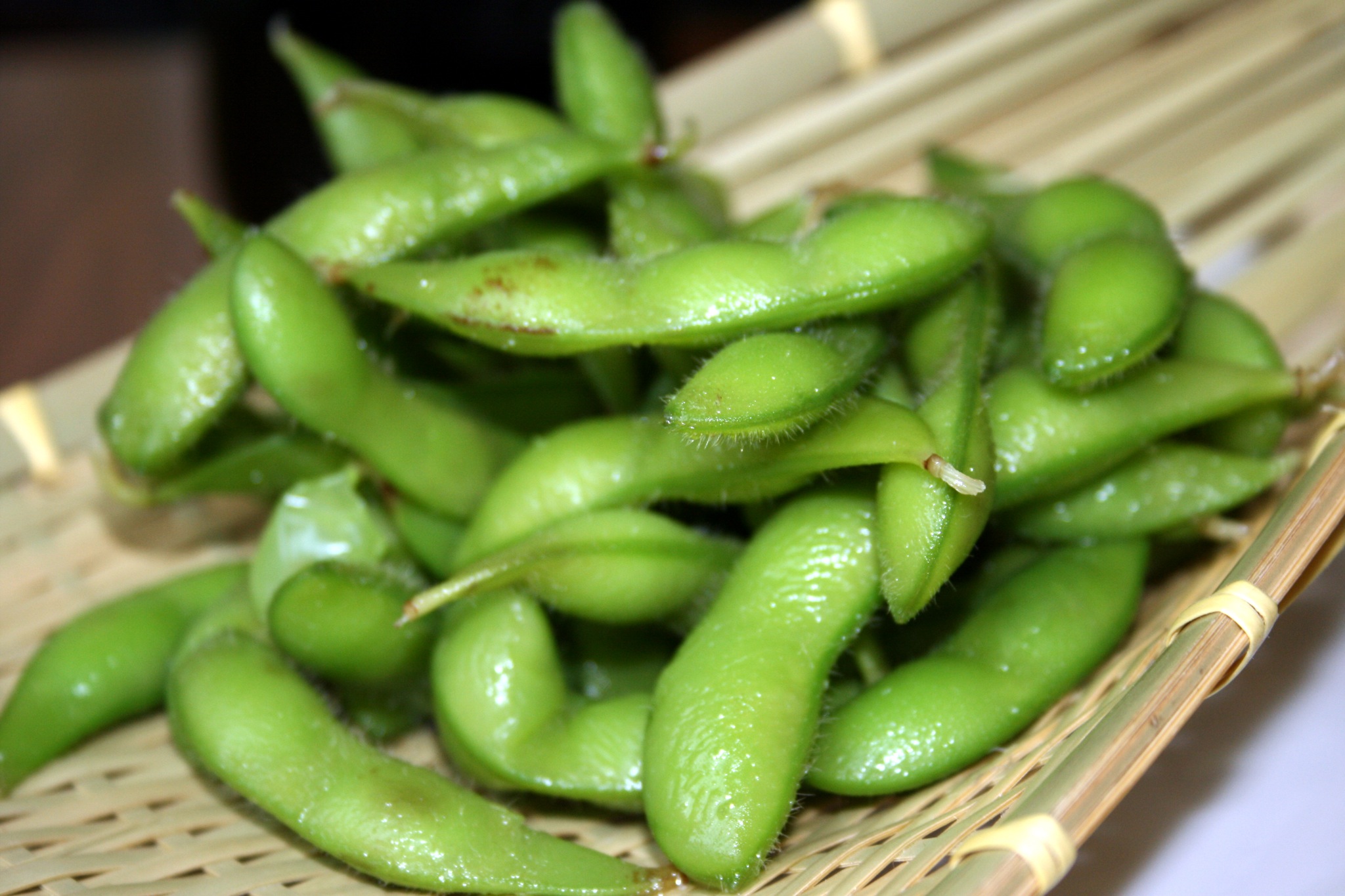 |
| From http://upload.wikimedia.org/wikipedia/commons/e/e7/Edamame_by_Zesmerelda_in_Chicago.jpg |
However, the emphasis on fresh lightly cooked vegetables, fruit, fish, smaller portions, and not eating to the point of complete satiety are very good things. There's also a heavy emphasis on green tea, although she is careful to stress that tea's beneficial properties have only been researched to a small extent, and all that we can really say is that it has lots of antioxidants in it, and it's a nice calorie-free option (since my dietician has told me that she'd prefer me to eat, rather than drink, my calories, I've been more inclined to eat fruit rather than drink fruit juice and have been drinking lots of water and decaf tea).
One of the other foods highlighted in this book is soy. Moriyama cites the studies on this food, but clarifies that the "soy is good for you" studies and the "soy is bad for you" studies aren't yet extensive enough to provide very concrete information, but soy beans in their less processed forms are probably better for you than a soy protein shake (not surprising). We like tofu since I figured out what to do with it a few years ago (my first attempt at cooking tofu was not a success), and edamame is easy to find in the frozen vegetables section. Actually, it's one of the few frozen vegetables I've bought, since I've never been keen on the combo packs of frozen veggies and I don't like corn. Usually we get frozen peas or green beans, which then get used in stir fries or curries.
So I've been giving edamame a try as a snack in the afternoon. It's a good choice so far. I realized a couple days ago, based on some of the things I have to test, that I wasn't eating quite enough, so I've been trying to bump up my caloric intake without going too far on the carb front. It's harder than I thought, because what I want to eat are more carbs, and if I don't want my blood sugar to spike, that's not an option.
Anyway, the book's a fun read, and there are some great recipes. I can't try all of them right now, and I must admit the book made me long for sushi, which I can't have until after the baby's born, but the principles in it are rather useful for thinking about a long-term healthy diet.

No comments:
Post a Comment
Feel free to leave a comment and I'll make sure it gets posted as soon as possible. I currently get so few comments that I moderate to avoid spamming.